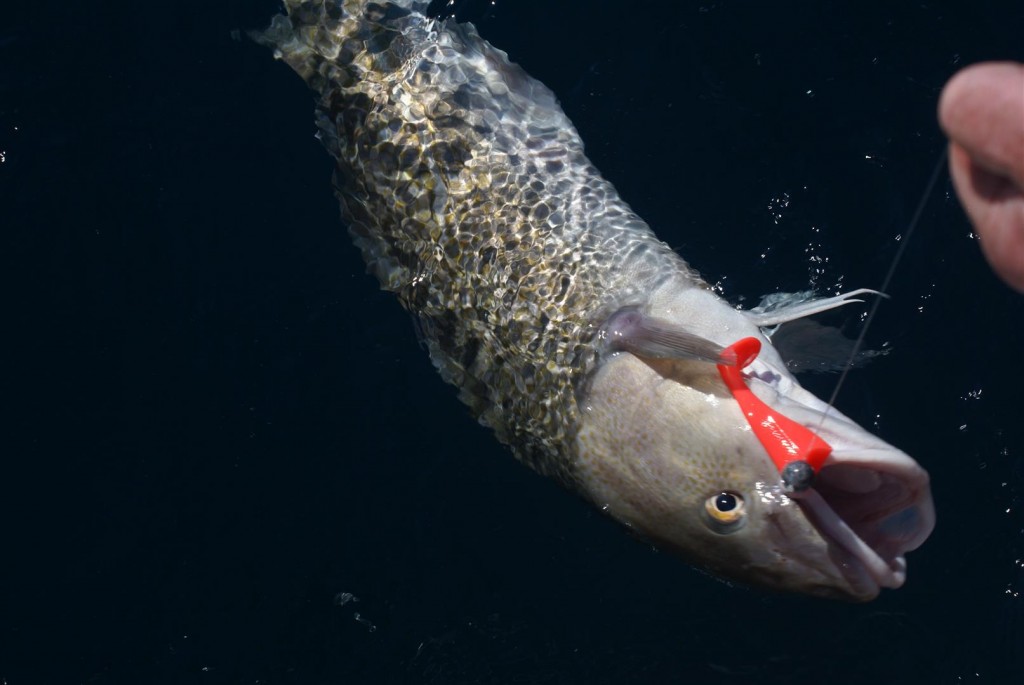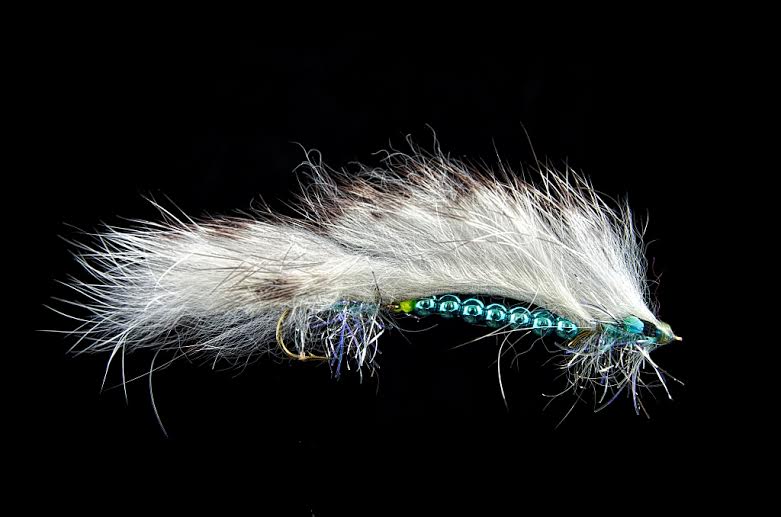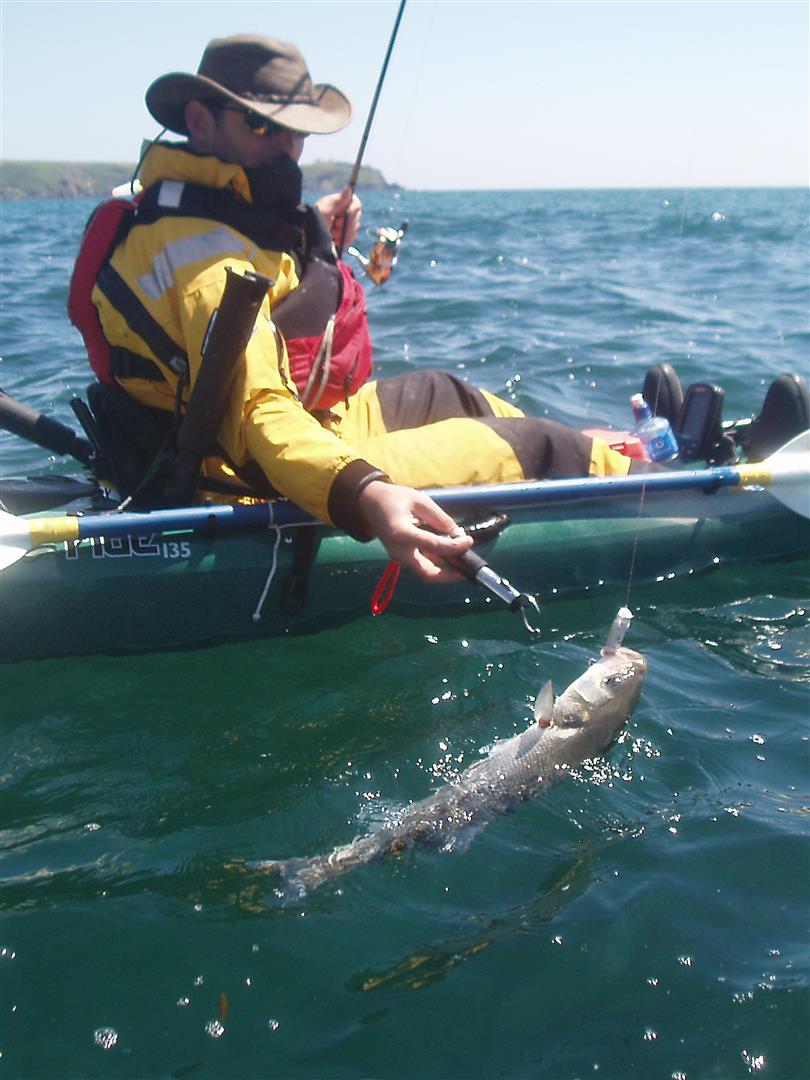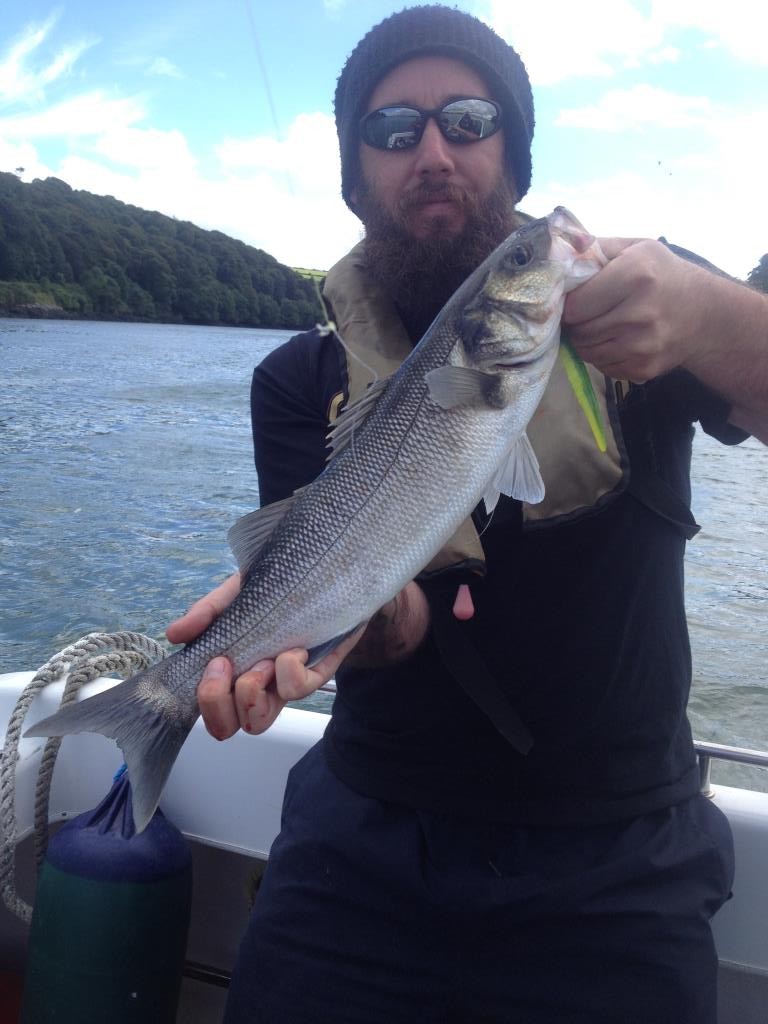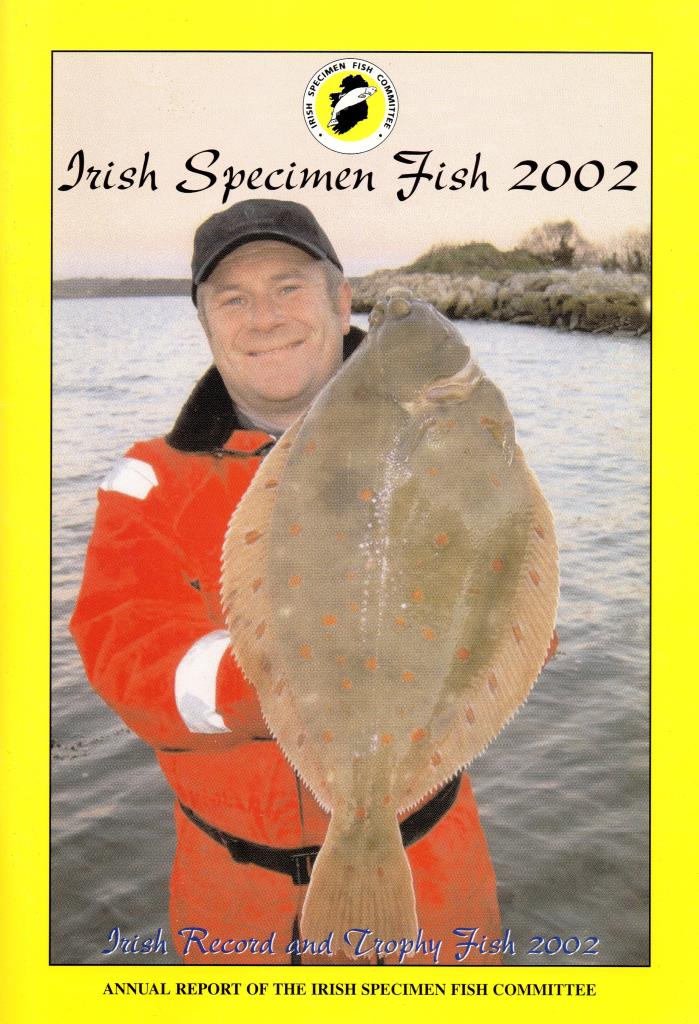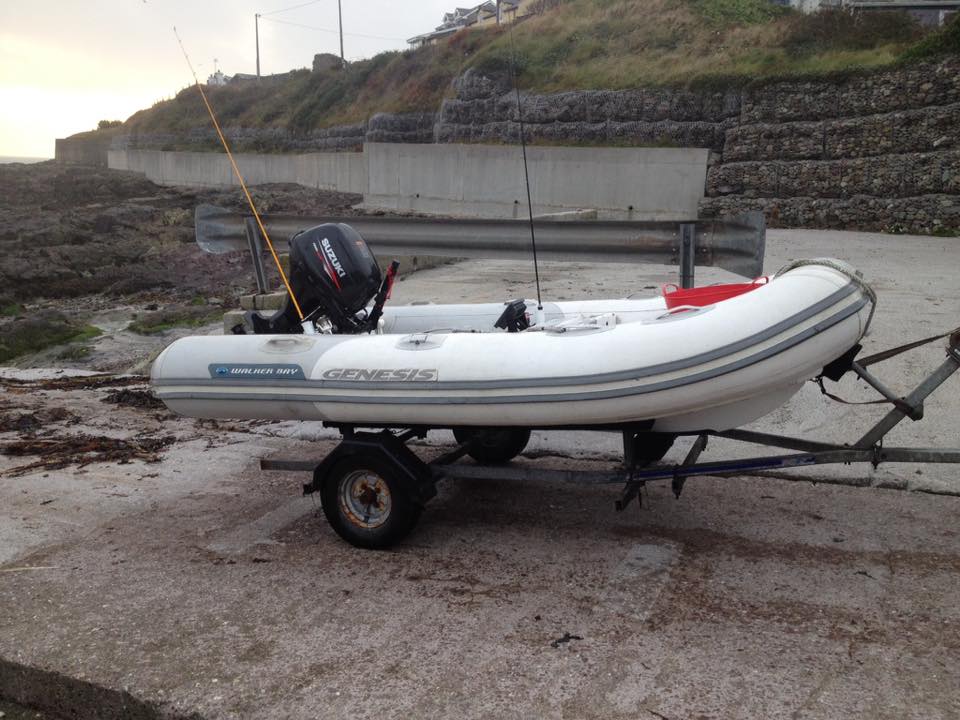*Angling for Info!

Angling for Information
Where does one start? I suppose we should take stock of where our sport is and this moment in time:

I don’t think there is a boat angler out there that would say that we are having better sport now than we were having 30 or even 20 years ago. I don’t think there is a shore angler that would say the fishing now is better than it was years ago. Let us not be blinded with using new techniques and methods to catch fish and thinking that things are better now than before. The only species doing well are those that are offered a level of protection. Take smooth hound for example. Without protection their numbers were declining. With protection, as the population increases, they are moving into territory they have not been seen in years.

Inland Fisheries Ireland (IFI) has been given the remit to gather information about the catch rates of recreational anglers. We caught up with Willie Roche and Diarmuid Ryan of IFI to find out more about the survey work to be carried out. Willie is a Senior Research Officer with IFI that most will know from his sterling work with the Irish Specimen Fish Committee (ISFC). Willie is also a keen sea angler. Diarmuid is the project manager for The Irish Marine Recreational Angling Survey (IMREC):
- Why is the EU looking for information on recreational sea angling?
Following legislation from the European Commission which requires EU Member States to collect and report data on recreational catches, Inland Fisheries Ireland has established this new survey programme which will give a clearer picture of how angling activities relate to stock levels. IMREC will provide data which will inform knowledge around trends in stock levels and the sustainability of key species. Without good quality information it is very difficult to present a reasonable estimate of catches and releases in Irish waters – this means that the impact of angling may be overstated by some. It is better to have good data rather than operating in an information vacuum.
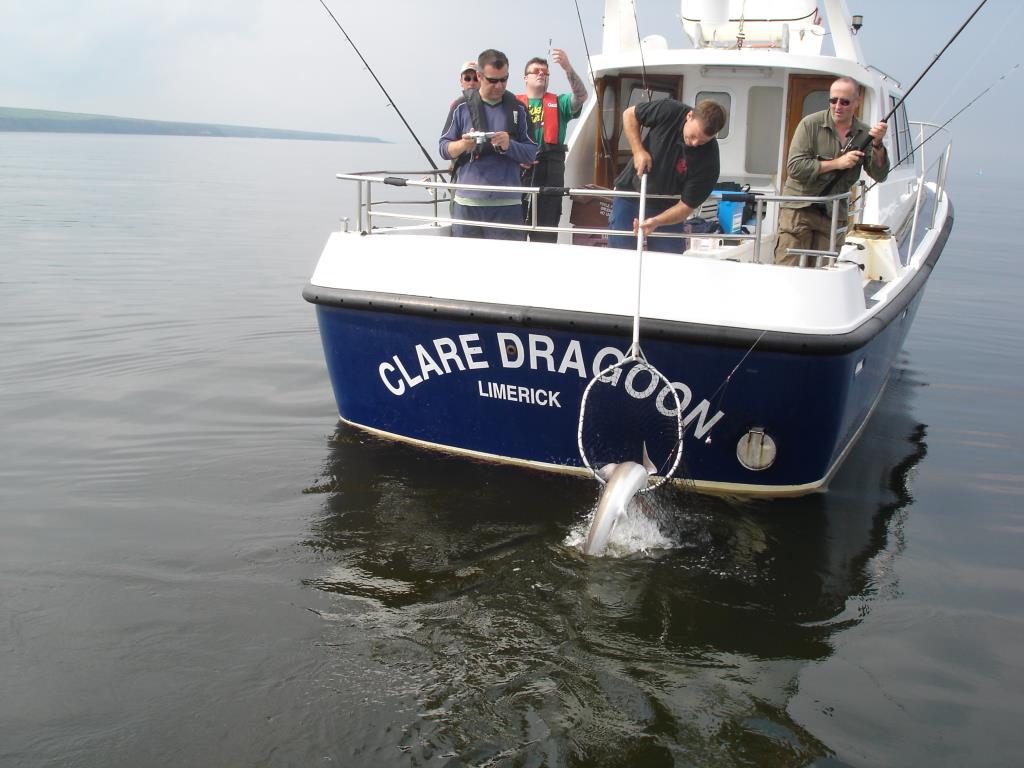
- What information is the EU looking from its members regarding recreational sea angling?
The EU requires all Member States to report national catches and releases of certain species of fish. To do this information on how many people go sea angling in Ireland is needed. This combined with information about how often these sea anglers fish and what they catch retain and release will allow us to calculate the overall catch. This information will be used to estimate the total biomass of each angling species which is removed from the fishery so that we can assess the impact, if any, the sea angling community has on fish stocks around the Irish coast.
- How are different styles and techniques covered – Shore, boat, charter, bait, lure, fly… etc?
We will use a variety of methods to collect angling data. For shore and private boat angling, IFI staff, in close consultation with stakeholders in the sector, has identified fishing locations around the country. These are mainly well-known shore marks, rock marks, piers and slipways. These sites have been ranked according to angling activity. This information has allowed us to design a nationwide on-site sampling programme.
Angling venues throughout the country will be visited by trained surveyors over the course of the year where they will have a quick chat with willing anglers and ask questions relating to species, catch rates, release rates and techniques used. Surveyors will also meet anglers on some of the piers and jetties as they return to base after a day out. We obviously cannot meet every angler in the country but we will use statistically valid methods to ensure our sample will be as representative as possible of all sea angling activity in Ireland. This type of sampling technique, known as a creel survey, has been tried and tested internationally over many decades.
The charter angling sector will be sampled by participating charter skippers who have been provided with a catch diary which they can fill in whenever they go fishing. Charter skippers have an innate knowledge of angling around their area of the coast and we are extremely grateful for the co-operation and support of the Irish Charter Skippers Association (ICSA) for this survey.
We are also currently developing an online diary where Irish anglers will be invited to report their catches on a simple app. We intend to offer monthly prizes to contributing anglers who share their catch data this way. We hope to begin rolling this out by the end of the year and are currently recruiting interested anglers.
Previous surveys of the sector in Ireland have tended to focus on socio-economic aspects of sea angling and often as part of larger studies of the entire angling sector as a whole. The different types of sea angling have generally been combined, although data on bass is usually collected separately, and limited information about different styles and techniques is available. To understand the sector better we have recently undertaken an on-line sea angler behaviour and attitude survey (see link at end of this piece). The response level by anglers has been excellent. The on-line survey has provided a wealth of information including the species that sea anglers target, which coastlines they prefer, preferred fishing methods and levels of catch and release plus much more. So a great start has been made and we are very grateful to anglers for that.
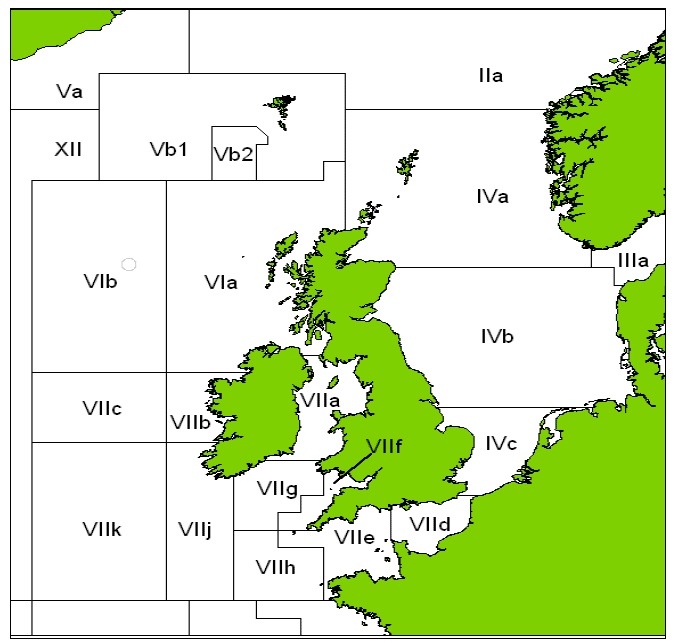
- How is the study going to take place? What are the phases?
As it stands this is a pilot study where we will learn about the sector and how best to survey angling catches. Future surveys will build on this output and refine the survey approach. This pilot phase of the study must take place over a calendar year so that we can assess variations in fishing effort, catch rates and catch types between the seasons. Originally it was planned to begin sampling in March 2020, however, the Covid19 pandemic has called a halt to most activities. Now that the country is beginning to reopen, we can recommence our sampling activities. So we will begin to visit shore locations, piers and jetties and begin to talk to anglers. Because of the pandemic we are hoping that the pilot project will be extended to summer 2021 to allow us to collect a full year of catch data.
The results of this pilot study, combined with data collected from the angler diary, should allow us to make informed decisions on how best to continue to monitor this valuable sector into the future.
- What is the EU going to do with the information gleaned?
All data collected from the various surveys will be combined, anonymised and scaled up to estimate to recreational catch rates of all priority species within particular marine regions, such as the Celtic Sea. These estimates will then be compared against commercial catches. This information will then be used to help to develop a complete picture of marine fish stocks around Europe, as required by the Common Fisheries Policy (CFP).
- Why are IFI given the job of studying angling?
Inland Fisheries Ireland (IFI) the state agency responsible for the conservation, protection, management, marketing, development and improvement of our inland fisheries and sea angling resources. Effectively IFI is the ‘competent authority’ in this area – for this survey IFI’s competency is considerably enhanced by the valuable insight of extremely knowledgeable angling stakeholders, several of whom are on the IMREC Steering Committee.
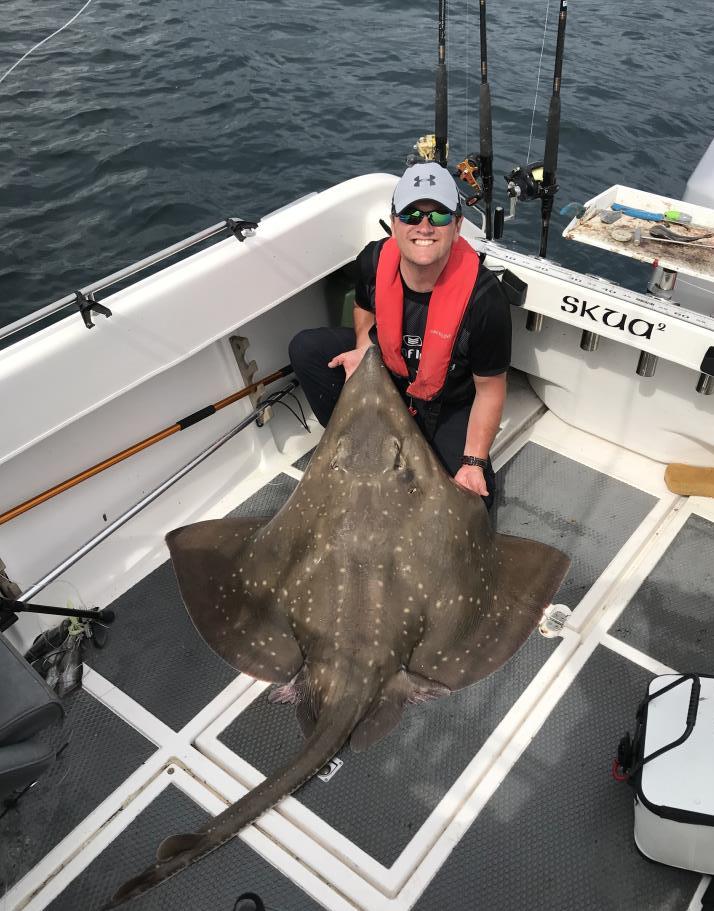
- Why should anglers support this study?
We strongly believe it is the interest of all sea anglers to support the gathering of good quality data. For the first time there is a survey which is focused on sea angling which will provide detailed information on different angling methods and catches, and the levels of catch & release practised by anglers in Ireland. Anglers have an important role here as stewards of the sea – anglers are out ‘on the ground’ – they observe changes in species, catches, sizes and are in effect citizen scientists. By collecting the information and centralising it through this survey we can begin to understand and monitor change rather than rely on solely anecdotal information. The only reason for this survey is so that fish stocks around Ireland can be properly monitored and conserved now and for future generations. Healthy seas mean healthy sea angling. When you share information about your fishing trip, this information will contribute to the development of sound policy decisions that will help to safeguard recreational fishing.
- Sea Anglers have struggled to get a “seat at the table” when it comes to decision making on matters that concern them. Will this survey help them get heard?
Yes, we believe so. Without robust data relating to recreational angling, as is currently the case, it is very difficult to make evidence-based arguments about its impact, or lack thereof, on fish stocks compared to commercial fishing. When there are large unknowns around angling impacts fisheries managers may follow the precautionary principle and limit angling unnecessarily. So as a key stakeholder it is important to contribute good information.
Commercial fisheries have been reporting catches at EU level for many years and there are several regulations which commercial fisheries must comply with in order to allow for scientific assessments of marine stocks. By gathering this recreational catch data, we can improve these assessments by giving scientists the full picture when it comes to marine stocks and become a better informed and a more responsible stakeholder.
However, if there is strong evidence that a fish stock is being overfished or in decline due to commercial and or recreational fishing, then we believe all responsible stakeholders should come together to agree sensible measures to help conserve stocks.
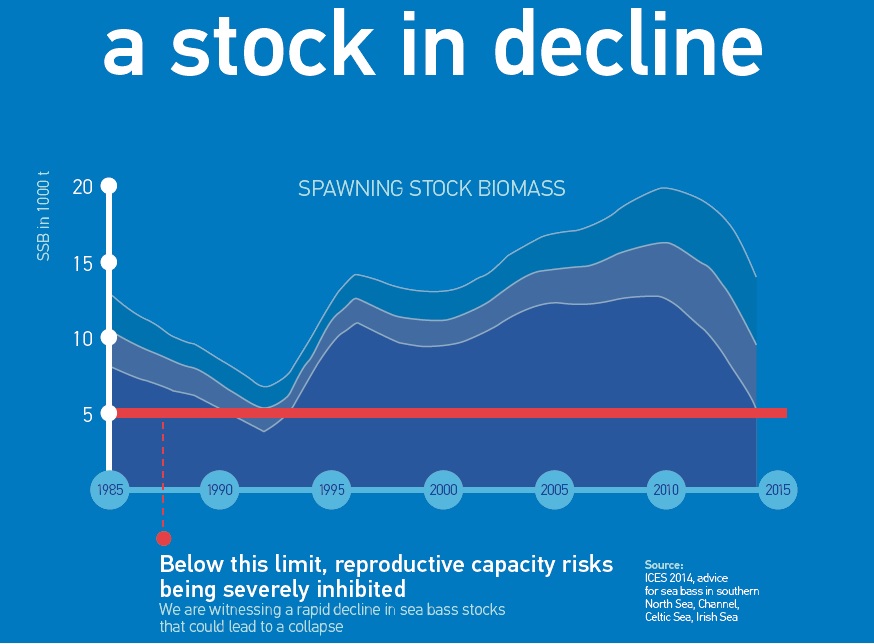
- What are the aims of the study – What should it achieve?
Ireland is obliged to report recreational angling catches to the EU so one of the aims of the survey is to satisfy those requirements. However this provides a great opportunity to finally characterise the sector using robust scientific methods. This work will allow us to gain a broader understanding of all aspects of marine recreational sea angling in Ireland in the 21st century. The information collected will help the cement the importance of recreational sea angling alongside Irish angling in general. We want to be able to answer questions such as: How many people fish in Ireland? Where they fish, when they fish and how often? We also want to know about catch rates and the proportion of fish which are released. This information will be shared with the sea angling community so that they can in turn demonstrate that they are responsible stakeholders.
For this project to be successful we obviously need the sea angling community in Ireland to contribute to what we believe will ultimately be very beneficial for not only sea angling but for the coastal environment in general.
IFI is running a wide ranging online survey to gather information around modern behaviours and attitudes of Irish sea anglers. We would appreciate it you took 10 minutes of your time to help with this valuable project. Link: https://www.surveymonkey.com/r/IMRECSurvey
TF: Sea Anglers should fill out this survey and take part in the field surveys that will be ongoing.
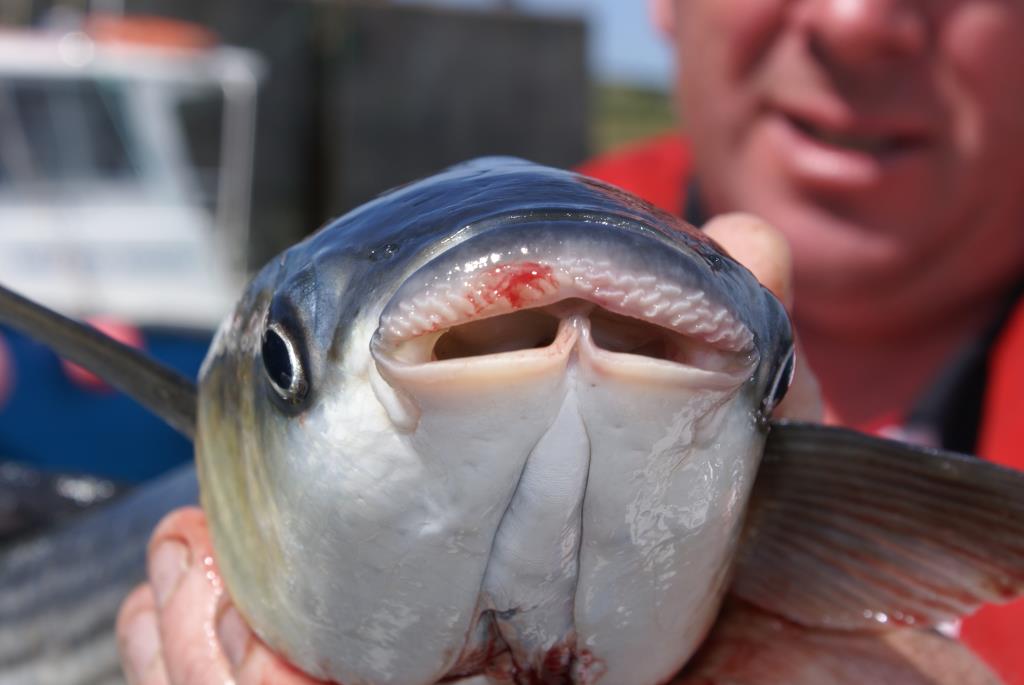
Where Is Angling In Ireland?
Commercial fishing to a point is regulated by the EU’s Common Fisheries Policy (CFP). Fish that have commercial value are governed by a Total Allowable Catch (TAC) and this TAC in turn ripples down to the quota that commercial boats are allowed catch. It is an imperfect system with many flaws but it is the only show in town as regards giving commercial species a break.
Increasingly, every fish has a value in the market making it worth catching commercially. We see over the years the relatively new fisheries for boarfish and blue whiting have become multi million euro industries. This increasing fish worth has hammered many inshore species. Mullet, always perceived to be not worthy, are now netted for money. Unfortunately for Irish anglers the state agencies that control these non-quota fish species are not swift enough to see that once these slow growing fish are caught it take years for areas to recover. The catching of mullet in harbours and estuaries has become a free for all and a disaster for the species and a disaster for anglers. Imagine when you are on your holidays to Spain and you attempt to net the mullet near the local marina. You’d be lynched?
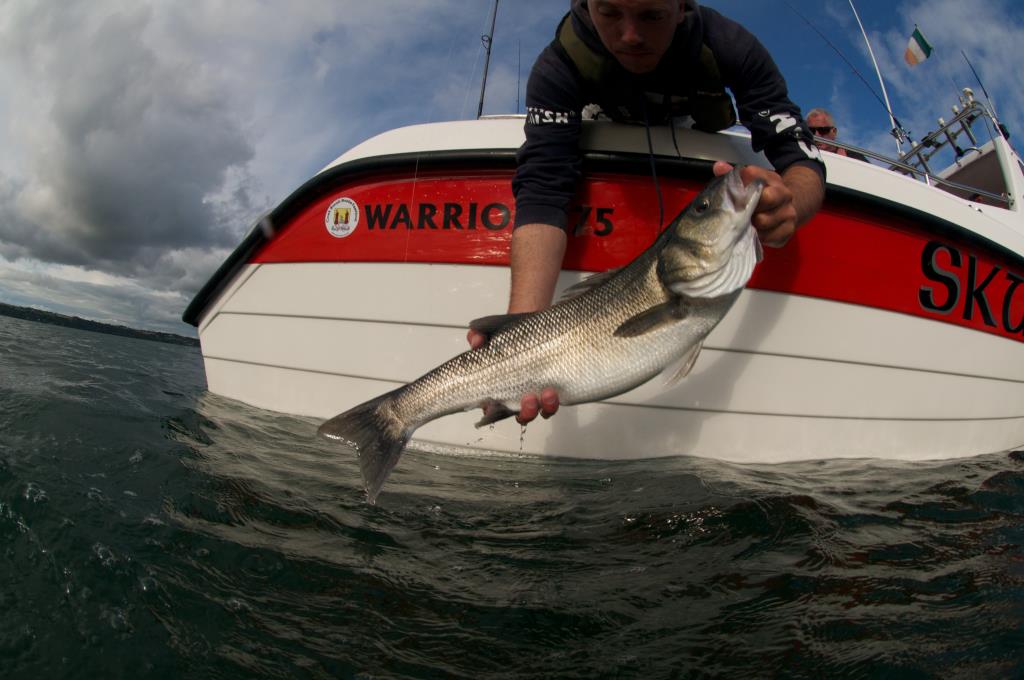
History tells us that things can go in the right direction too. Bass would be a case in point. With some forethought bass were designated a sport fish with no commercial fishing back in the early 90’s. it was a relatively easy task at the time as commercial fishing and illegal netting had all but wiped out bass as a viable species. Inland Fisheries Ireland have been at the coalface since as the protectors of our bass stocks.
So it can be seen that as flawed as the system is, sometimes things can be done for the greater good of both species and angler. The issue for anglers has always been an inability to set the agenda; an inability to make an impact on the decision making process.
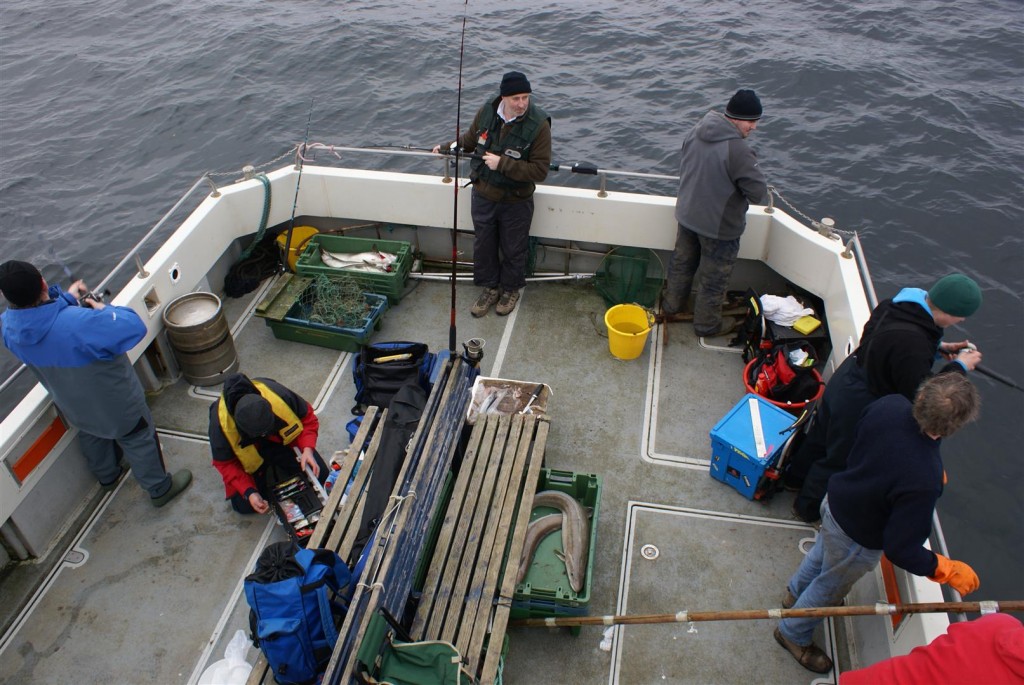
Why do anglers struggle to make representation to government about the species that are threatened? Firstly, we sea anglers have no credible representation. We are a disorganised bunch and therefore we do not speak with enough clout behind us. We also do not have organisations prepared to make enough noise about the issues that affect sea anglers. Despite contributing a lot of money to the state coffers and offering much to the social wellbeing of the country angling really does not feature in the decision making process.
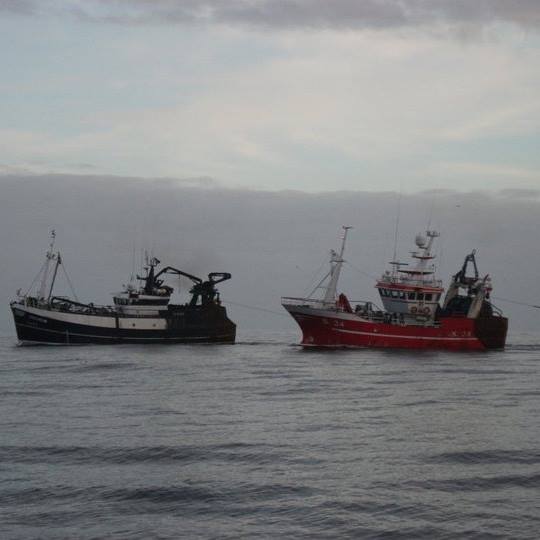
Enter the EU
The EU has lofty ideals. It recognises that commercial fishing has the potential to wipe the oceans! It has committed to fishing sustainably in such a fashion as not to wipe out any species – To fish each year only enough that leaves enough fish to breed and replenish. To this end scientists take samples in order to determine how many fish of a species are in different areas of the ocean. Based upon this science the EU determines the TAC for each year.
Lately the EU has considered all forms of fish catching in considering fishing mortality, this includes angling. The danger is that the EU does not have any serious records as to the amount of fish that anglers retain and therefore they act on the “precautionary principle” and prevent anglers from catching at all.
Such was the case recently with bass. Even though we in Ireland do not have a commercial bass fishery in parts of the UK and continental Europe there is an important commercial fishery for bass. The fishery is a lucrative one. Bass thrive in the warmer waters south of us and the south coast of England and the coast of Brittany holds many bass. Bass also migrate offshore in the winter. Here they gather together for the purpose of breeding. Commercial interests found where the bass gathered to breed and began to pair trawl the shoals during the winter. The pair trawling combined with incessant gill netting put bass stocks close to collapsing.
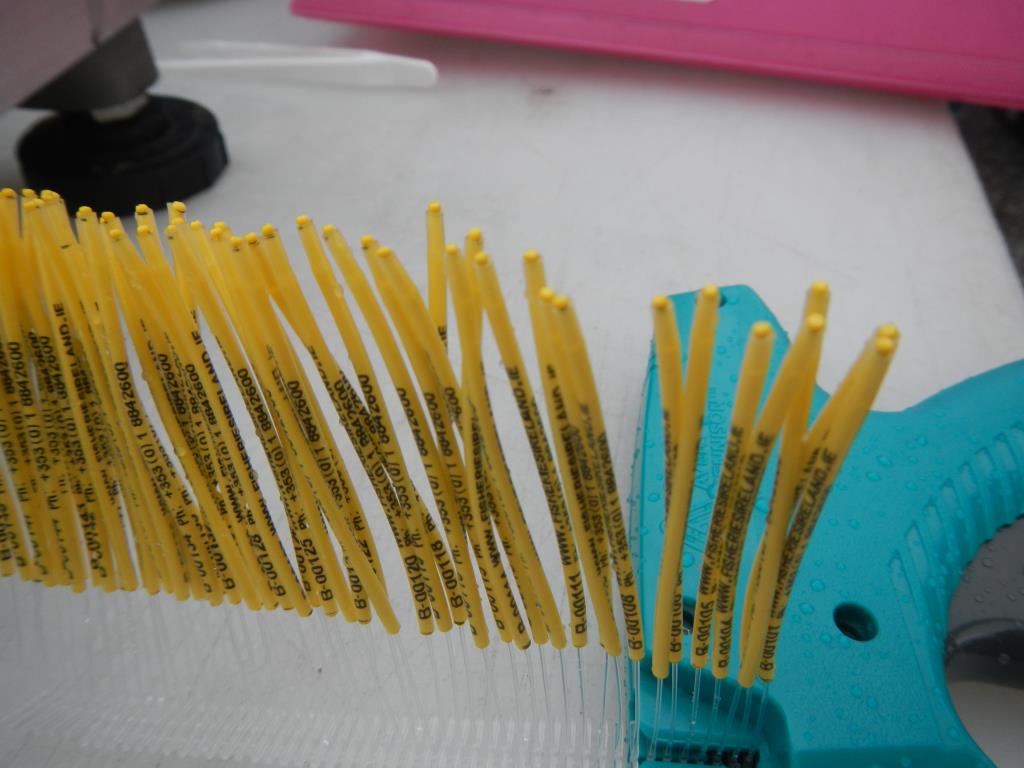
The EU took action and banned pair trawling and restricted netting. They took into account the estimated level of recreational fishing mortality when determining the amount of bass caught each year. Based on the estimated amount of anglers, this could be a considerable amount of fish. Following the precautionary principle, anglers were restricted in terms of catch as well. To be fair to the EU and their good intentions; their estimate of anglers and angling mortality of bass was way out. Most anglers release bass alive and studies have shown that released bass survive very well. Once the EU had better information they relaxed the restrictions on anglers retaining a couple of bass. The more information they have the better. Recognising this the EU has directed member states to find out, to quantify, how much fish recreational anglers retain.
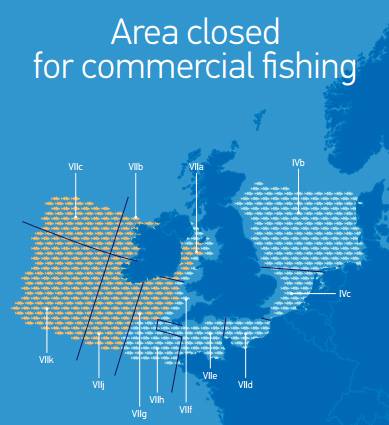
How fast do things recover when EU controls are put in place? East coast anglers would probably say that tope, smooth hound and spurdog fishing is better now than for many years. Skate angling off the south coast is definitely better in recent years. Certainly porbeagle sharks are more common now they are protected. White fish are under more pressure. Cod made somewhat of a recovery only to be hammered again. Off the south coast decent cod catches by anglers are a distant memory. The quota for cod was slashed in in 2018 and 2019. Is it a coincidence or a natural cycle that we are starting to see some cod off the south coast in summer 2020?
Information and Ireland
So the EU is looking for information from and about recreational anglers. The first angling reaction is to “tell ‘em nothing”. Based upon previous EU decision making it would appear that in the case of a lack of information, the EU will adopt a “worst case” scenario. This will harm anglers and angling certainly in the short term. The EU is trying to be the best informed it can be in terms of decision making. It would seem that anecdotally, anglers retain far less fish than they catch.
Changing Times
Sea Angling will continue to face challenges. There are impending decisions on Marine Protected Areas and it is imperative that anglers are represented at the discussions. We must show ourselves to be mature enough to take decisions for the better good of society, angling and of course the fish.
